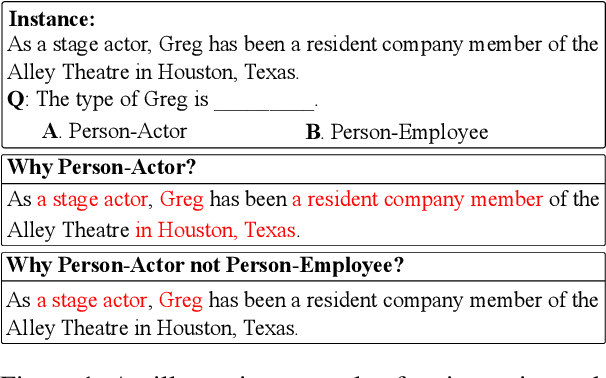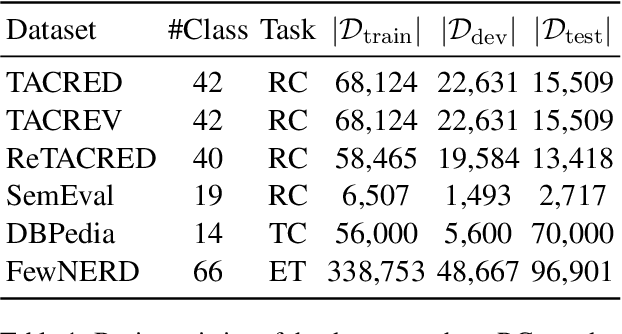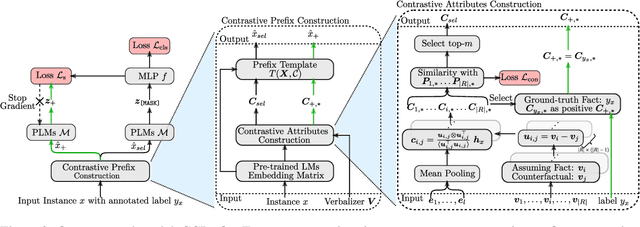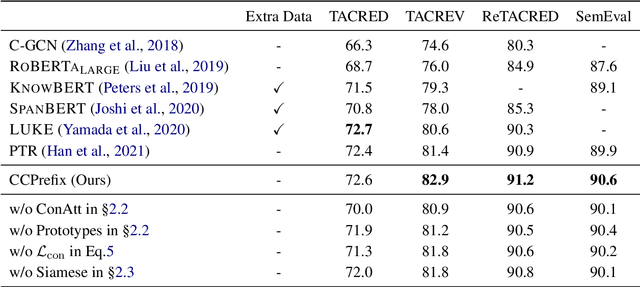CCPrompt: Counterfactual Contrastive Prompt-Tuning for Many-Class Classification
Paper and Code
Nov 11, 2022



With the success of the prompt-tuning paradigm in Natural Language Processing (NLP), various prompt templates have been proposed to further stimulate specific knowledge for serving downstream tasks, e.g., machine translation, text generation, relation extraction, and so on. Existing prompt templates are mainly shared among all training samples with the information of task description. However, training samples are quite diverse. The sharing task description is unable to stimulate the unique task-related information in each training sample, especially for tasks with the finite-label space. To exploit the unique task-related information, we imitate the human decision process which aims to find the contrastive attributes between the objective factual and their potential counterfactuals. Thus, we propose the \textbf{C}ounterfactual \textbf{C}ontrastive \textbf{Prompt}-Tuning (CCPrompt) approach for many-class classification, e.g., relation classification, topic classification, and entity typing. Compared with simple classification tasks, these tasks have more complex finite-label spaces and are more rigorous for prompts. First of all, we prune the finite label space to construct fact-counterfactual pairs. Then, we exploit the contrastive attributes by projecting training instances onto every fact-counterfactual pair. We further set up global prototypes corresponding with all contrastive attributes for selecting valid contrastive attributes as additional tokens in the prompt template. Finally, a simple Siamese representation learning is employed to enhance the robustness of the model. We conduct experiments on relation classification, topic classification, and entity typing tasks in both fully supervised setting and few-shot setting. The results indicate that our model outperforms former baselines.
 Add to Chrome
Add to Chrome Add to Firefox
Add to Firefox Add to Edge
Add to Edge